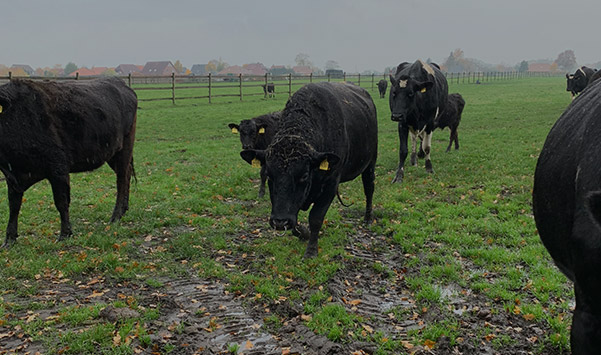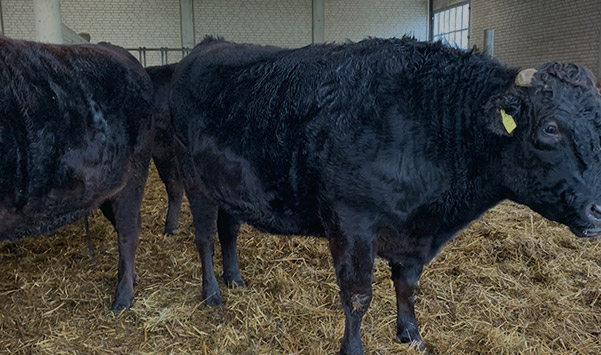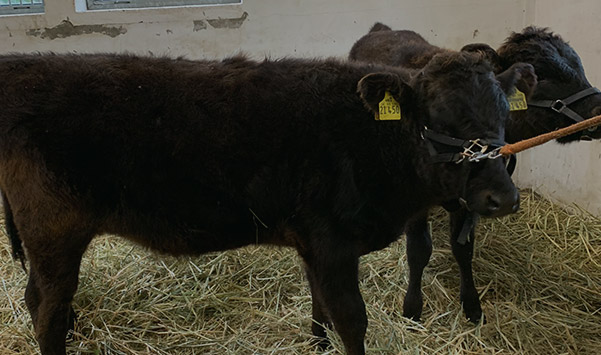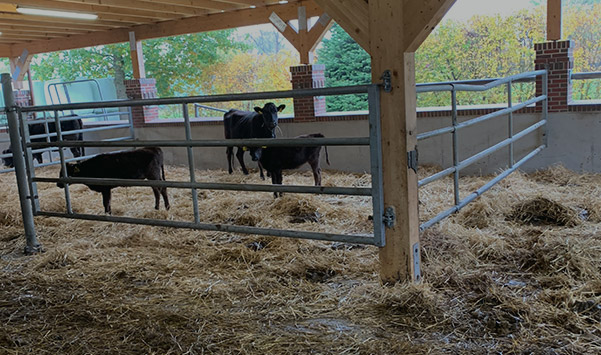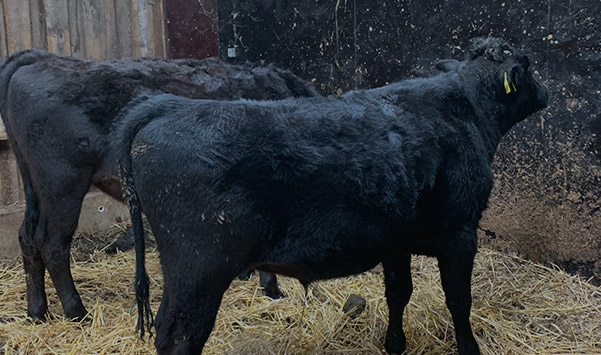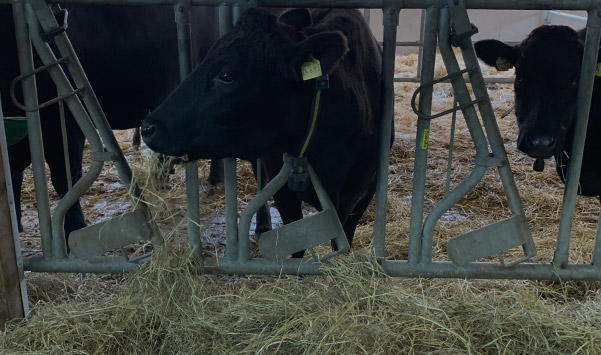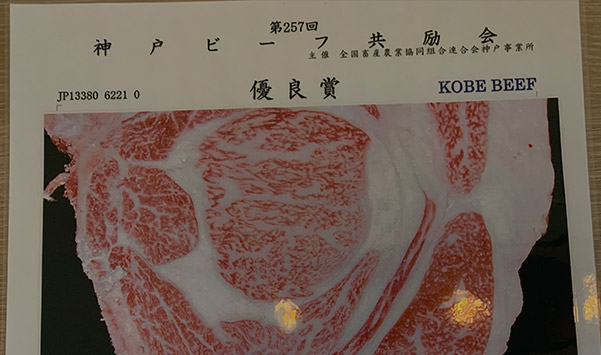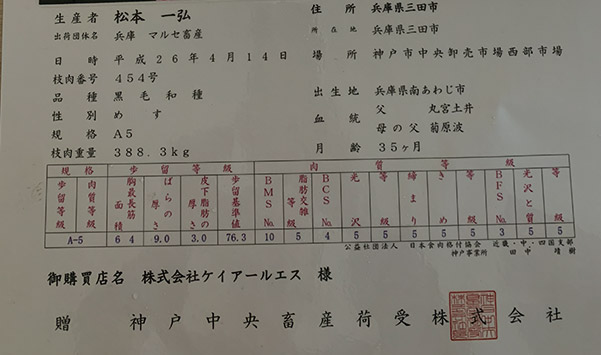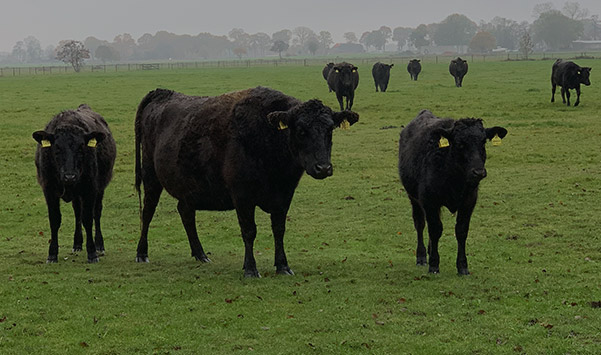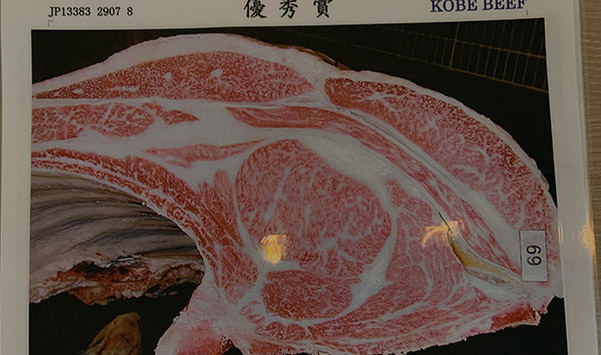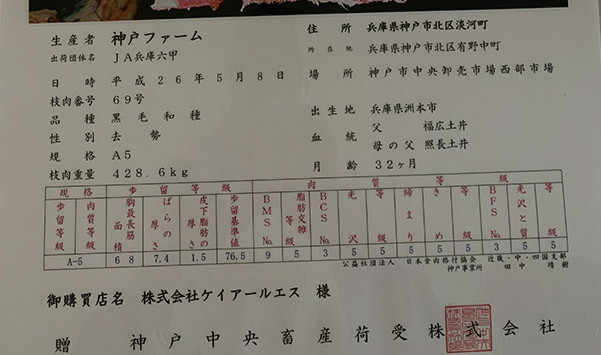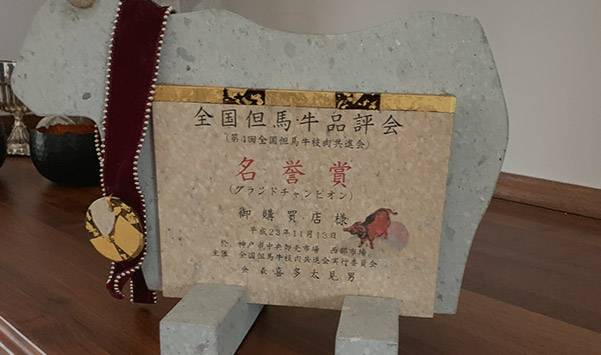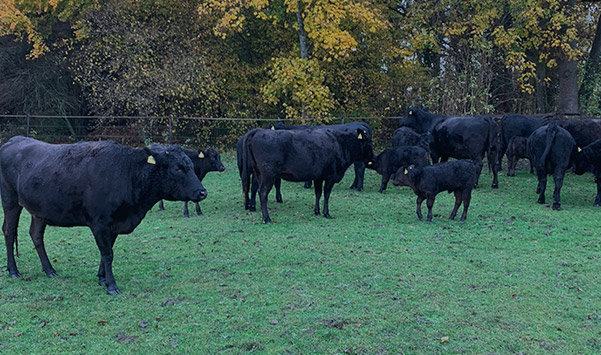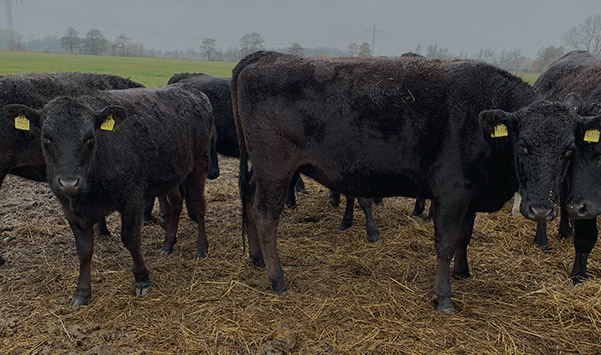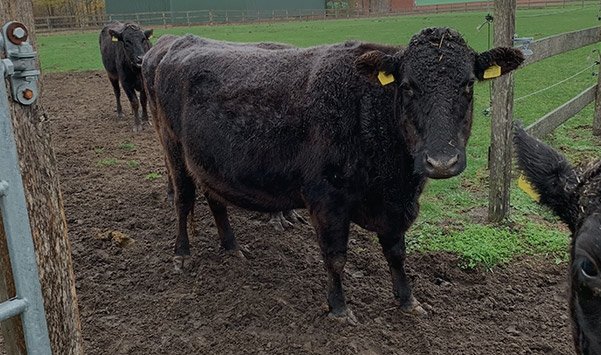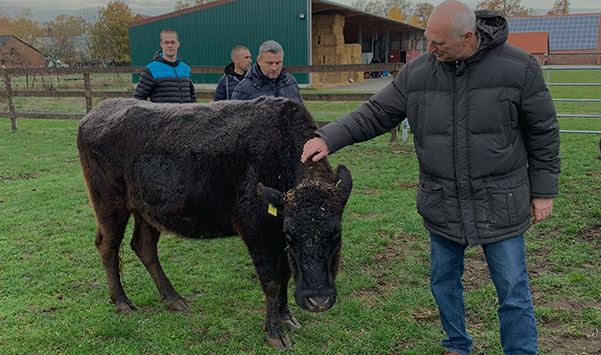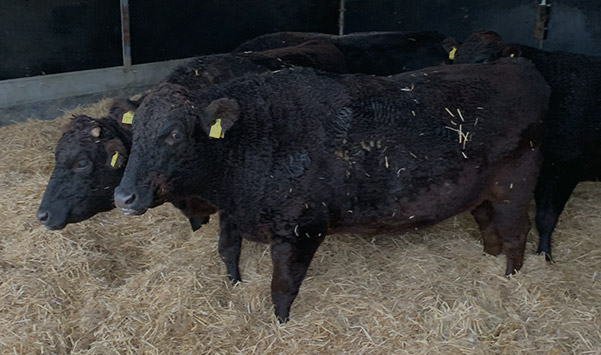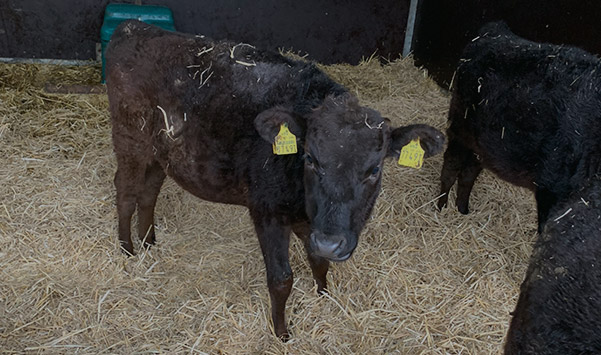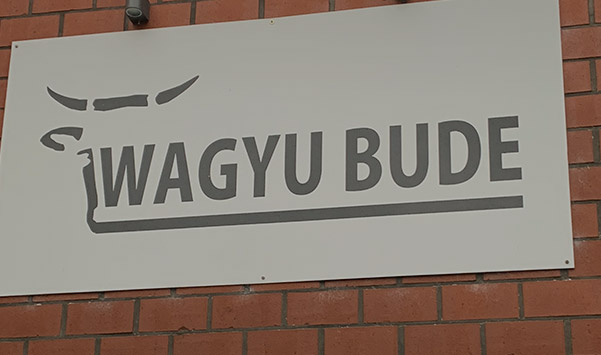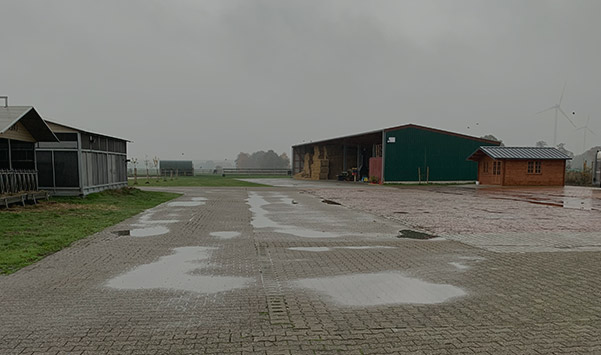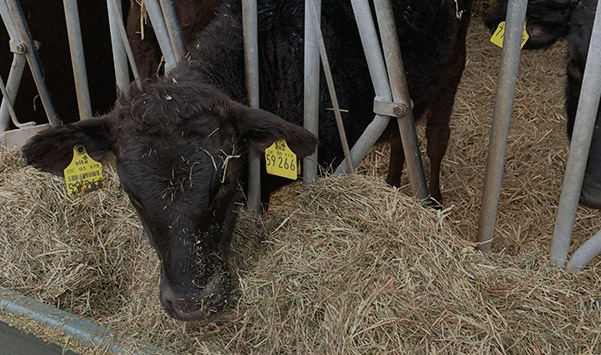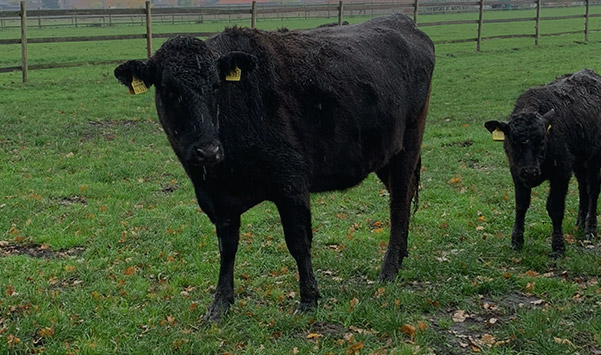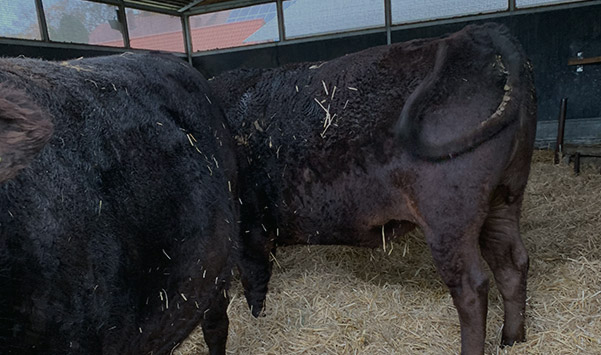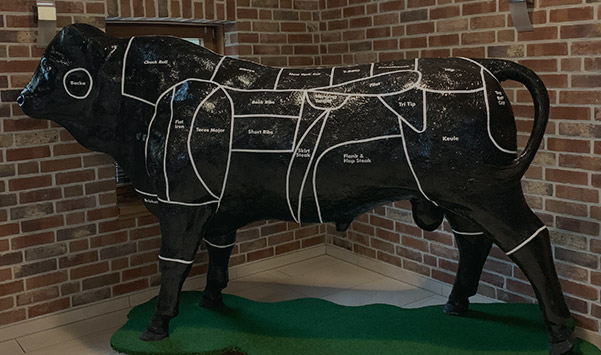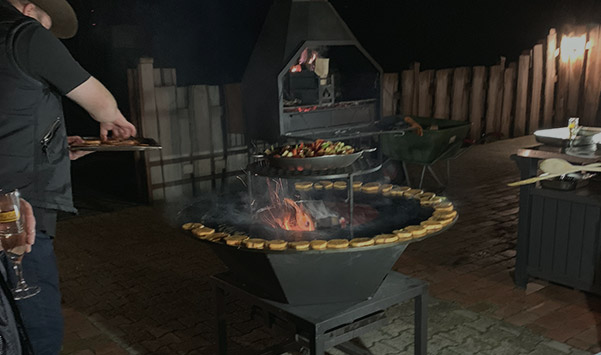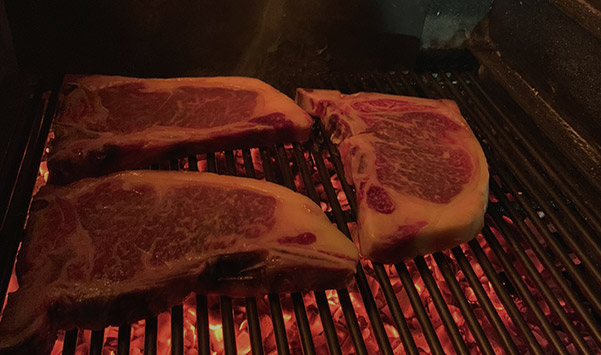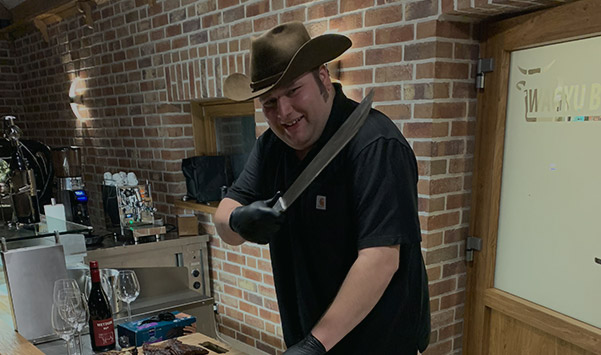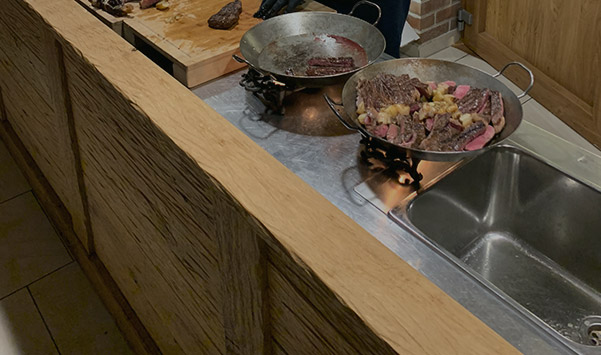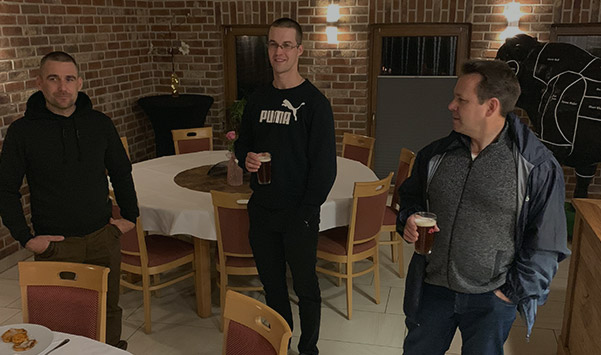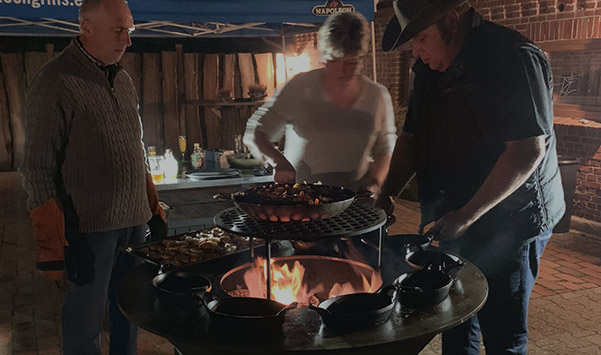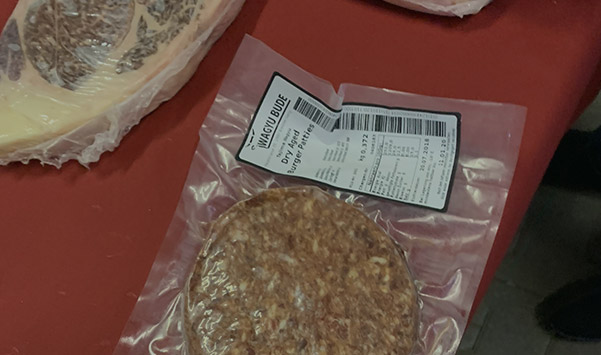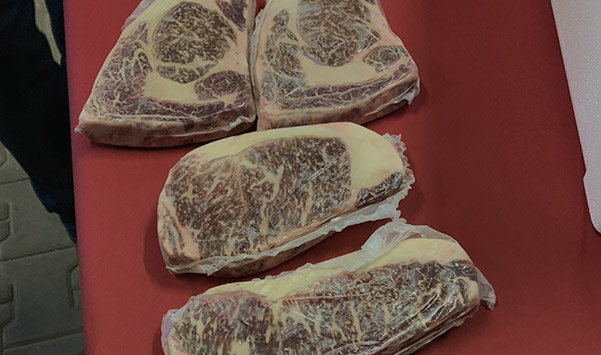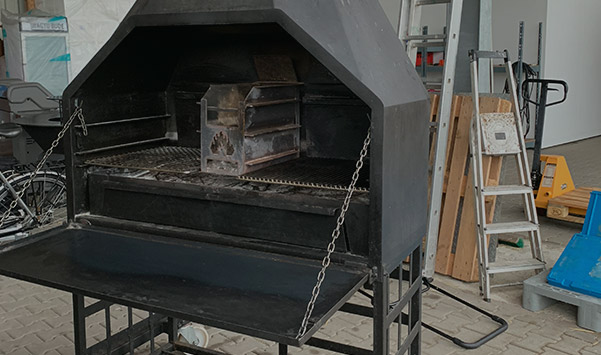In Japanese the word Wagyu stands for ‘Japanese cattle’. Years ago, Wagyu cattle in Japan were pampered with massages while being fed beer and sake. Naturally, German farmers do not have such practice, yet it is important to ensure a stress-free environment for the cattle. There are around 8 million cattle in Germany: about 4.1 up to 4.2 million is kept for milk production and nearly 4 million — for meat production. Less than 2000 specimen of the mentioned 8 million cattle in Germany are of the Wagyu breed.
Wagyu meat has a distinctive intermuscular fat marbling. The breed is well-known worldwide because of this feature, i.e., the ability to develop the richest fat marbling. Apart from the typical flavour of the Wagyu meat, it also has an intensely buttery and nutty flavour. Occasionally one may observe the so-called ‘Labello’ effect as if the lips were coloured. When eating the Wagyu beef, one may savour it on lips.
In collaboration with MASTERRIND, which is based in Germany, we had an excellent opportunity to visit two pure-bred Wagyu farms jointly with cattle breeding specialist Torsten Kirstein. First, we visited the Wagyu farm in Bockhorn, i.e., Wagyu cattle breeder Ulrike Dassler. She owns a small Wagyu farm. Wagyu cattle are kept for breeding and meat production purposes. The farm sells whole matured carcases of the meat. The farm pays particular attention to the nutrition of Wagyu cattle and their housing conditions, and we were given some advice about Wagyu breeding. We had the opportunity to witness the process of preparing two breeding heifers for sale. Before the sale heifers are habituated to wearing halters and a lot of time is spent to ensure that the customer would be satisfied with the purchase. We purchased 2 in-calf Wagyu heifers of which we are very proud and pleased, because these heifers have excellent Japanese genetic traits and the highest meat quality indicators attested by specific meat quality certificates.
Next we visited the son of Wagyu breeder Alfons Ruhe — Dieter Ruhe — in Emsland. He breeds pure-bred Japanese Wagyu cattle both for meat production and breeding purposes. Dieter Ruhe is a real gourmet and a master in cooking steaks, hosting top steak-cooking classes and seminars. Currently there are around 40 Wagyu cattle in the farm and additional 20 cattle are obtained each year. Calves have only one task — for a period of 4 years to eat, grow and develop the famous marbling, i.e., the Wagyu signature feature because of which the meat costs up to EUR 120 per kilogram.
Dieter Ruhe accented that the Wagyu meat resembles whisky production — whiskey aged a year longer has a more intense and full-bodied flavour. Likewise, meat which has been matured longer becomes more intense in flavour. It is more aromatic and incomparably more delicious. Breeder Dieter Ruhe maintains detailed records and told us that the muzzle print of Japanese cattle is as important in the records as a fingerprint in a passport. Of course, nutrition is the most important part in Wagyu cattle breeding as it strongly affects the flavour and aroma of meat. He told us that when feeding the cattle with wheat and corn a balance can be achieved between proteins and carbohydrates, meat accumulates starch and sugar. Grilling or searing give the steak a caramelised, beautiful, crispy, and delicious outer layer and we had the delightful experience to taste it.
There is only one conclusion: Wagyu meat is the most expensive and the best one to be served up on a plate, it has a unique marbling, flavour, and aroma. We purchased 8 in-calf Wagyu heifers from this farm.
We send special thanks to MASTERRIND cattle breeding specialist Torsten Kirstein, Ulrike Dassler, and Dieter Ruhe for the experience and advice in Wagyu beef cattle breeding.
/Dace Meldere/
